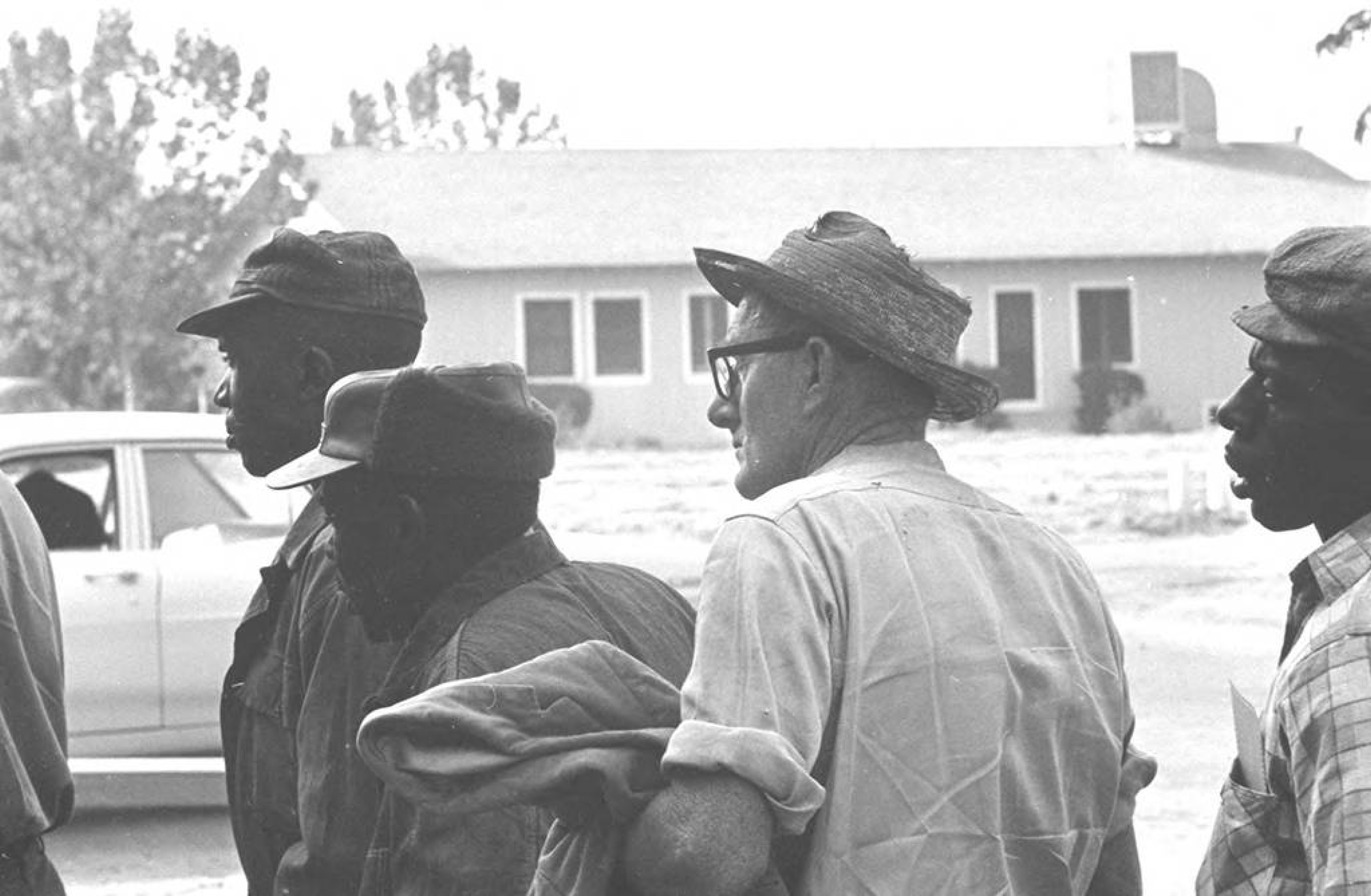DiGiorgio elections in Arvin
DiGiorgio elections in Arvin
Farmworkers arriving by bus to vote, Arvin, ca. 1966. Photo by Emmon Clarke.
Farmworkers lining up to vote, Arvin, ca. 1966. Photo by Emmon Clarke.
Farmworkers lining up to vote, Arvin, ca. 1966
Close-up portrait of four farmworkers waiting outside a building to cast their vote. That day, November 4, 1966, farmworkers working at the DiGiorgio ranch located between Arvin and Lamont cast ballots to decide if they would be represented by the United Farm Workers (UFW).
Fifty-nine percent of voters choose to join the UFWOC. Mack Lyons, a 25-year DiGiorno field worker who had worked in fields since he was 7 years old, told El Malcriado: “I was confident of victory here and I think it is just the beginning of unionizing farm workers all over the country. There is a place for everyone in the union, Negro, Mexican American, Puerto Rican, and Anglos.” Among the organizers responsible for the success of these elections in Arvin were Ida Cousino, Tony Mendez, Marshall Ganz, George Zaragoza, and Richard Flowers. These elections represented an important victory for the farmworkers as DiGiorgio was one of the largest landowners in California and an aggressive opponent of farmworkers’ attempts to unionize. The company had been a leader among anti-labor businesses in California for decades, had sponsored anti-picketing ordinances throughout rural California, organized blacklists of union activists, fought federal relief for strikers, and directed vigilantes to attack strikers. The company had also led the attack on John Steinbeck’s book The Grapes of Wrath, which was banned from schools and the public libraries in Kern County, it violently ended the 1947 strike against DiGiorgio’s Arvin plantation and sued the NFLU for libel over a film the union had produced about the strike: Poverty in the Valley of Plenty.
Farmworkers lining up to vote, Arvin, ca. 1966. Photo by Emmon Clarke.
Tom & Ethel Bradley Center
California State University, Northridge
18111 Nordhoff Street, Northridge, CA 91330
Phone: (818) 677-1200 / Contact Us


